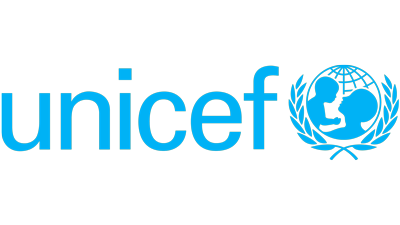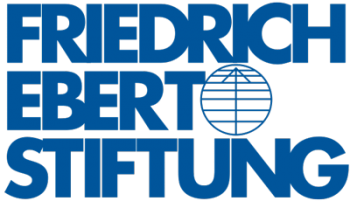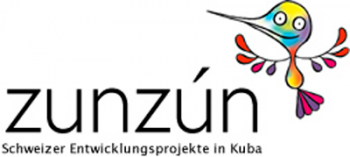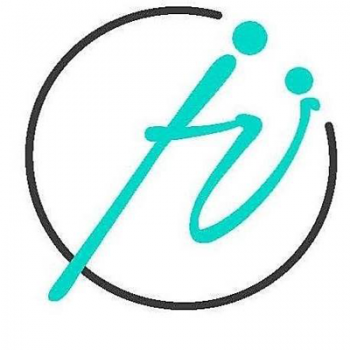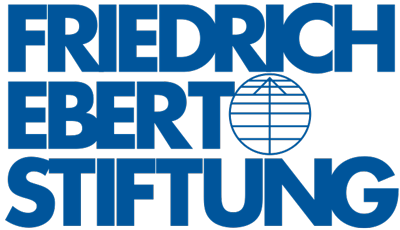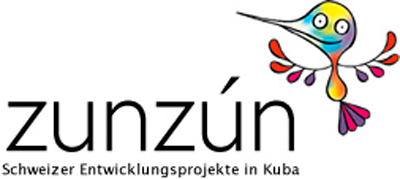
Social Sciences and the 2030 Agenda for Sustainable Development: challenges in contexts of global crisis.


The Center for Psychological and Sociological Research (CIPS), belonging to the Agency of Social and Humanistic Sciences of the Ministry of Science, Technology and Environment of the Republic of Cuba, invites researchers, academics, educators, students, public officials and civil servants, activists of social movements, communicators and other interested social actors, to the International Symposium 40th Anniversary of CIPS, to be held in Havana from November 14th to 17th , 2023, with the central theme “Social Sciences and 2030 Agenda for Sustainable Development: challenges in contexts of global crisis”.
At a global level, various international science institutions and organizations have identified major transformations underway in research and innovation processes in the face of the pressing challenges posed by the current crisis scenarios, in interdependent areas such as the economic, social, political, health, cultural and environmental spheres, among others.
This is linked to the demand for urgent attention to the seventeen Sustainable Development Goals (SDGs) set out in the United Nations 2030 Agenda. The SDGs unfold through one hundred and sixty-nine goals that interconnect complex issues related to sustainable development, such as social inclusion, environmental protection and economic growth. Some of the main issues prioritized in the international research agenda are aimed at improving the management of scientific systems for social sustainability, strengthening the integrity of research, the role and responsibilities in the dissemination of its results, and defending public commitment to science and its social impact.
An international context marked by asymmetries and polarities requires imminent changes that the social sciences must convene and help to generate. The International Symposium 40th Anniversary of CIPS proposes to share scientific approaches and tools to rethink current and future society from a systemic, multifactorial, intersectional and integrative perspective. Objectives of the Symposium:
To exchange experiences and knowledge on conceptual frameworks and work methodologies related to the central theme of the event and its thematic axis.
To favor the construction and consolidation of cooperation networks among institutions, organizations and centers related to social research.
To propose actions of transformation derived from the scientific debate in the different thematic axis proposed.
The event will be part of the commemorative day for the 40th anniversary of CIPS, a scientific institution with an active and consolidated work oriented to the social transformation and development of the Cuban revolutionary project, committed to the emancipatory and inclusive efforts in the most diverse areas of the social life of the country, of the Latin American and Caribbean region and of all the developing countries of the world. It constitutes an invitation to constructive dialogue and open and plural debate, based on reflection and analysis of our contexts, their complex problems and the prospects for progress that the social sciences can offer.

Social Sciences and the 2030 Agenda for Sustainable Development: challenges in contexts of global crisis.

The Center for Psychological and Sociological Research (CIPS), belonging to the Agency of Social and Humanistic Sciences of the Ministry of Science, Technology and Environment of the Republic of Cuba, invites researchers, academics, educators, students, public officials and civil servants, activists of social movements, communicators and other interested social actors, to the International Symposium 40th Anniversary of CIPS, to be held in Havana from November 14th to 17th , 2023, with the central theme “Social Sciences and 2030 Agenda for Sustainable Development: challenges in contexts of global crisis”.
At a global level, various international science institutions and organizations have identified major transformations underway in research and innovation processes in the face of the pressing challenges posed by the current crisis scenarios, in interdependent areas such as the economic, social, political, health, cultural and environmental spheres, among others.
This is linked to the demand for urgent attention to the seventeen Sustainable Development Goals (SDGs) set out in the United Nations 2030 Agenda. The SDGs unfold through one hundred and sixty-nine goals that interconnect complex issues related to sustainable development, such as social inclusion, environmental protection and economic growth. Some of the main issues prioritized in the international research agenda are aimed at improving the management of scientific systems for social sustainability, strengthening the integrity of research, the role and responsibilities in the dissemination of its results, and defending public commitment to science and its social impact.
An international context marked by asymmetries and polarities requires imminent changes that the social sciences must convene and help to generate. The International Symposium 40th Anniversary of CIPS proposes to share scientific approaches and tools to rethink current and future society from a systemic, multifactorial, intersectional and integrative perspective. Objectives of the Symposium:
To exchange experiences and knowledge on conceptual frameworks and work methodologies related to the central theme of the event and its thematic axis.
To favor the construction and consolidation of cooperation networks among institutions, organizations and centers related to social research.
To propose actions of transformation derived from the scientific debate in the different thematic axis proposed.
The event will be part of the commemorative day for the 40th anniversary of CIPS, a scientific institution with an active and consolidated work oriented to the social transformation and development of the Cuban revolutionary project, committed to the emancipatory and inclusive efforts in the most diverse areas of the social life of the country, of the Latin American and Caribbean region and of all the developing countries of the world. It constitutes an invitation to constructive dialogue and open and plural debate, based on reflection and analysis of our contexts, their complex problems and the prospects for progress that the social sciences can offer.
Thematic axis
1.
Public policies, inclusion and social equity. Social participation and citizenship formation.
2.
Social diversity and identities: groups, families, genders, generations and territories. Migrations
3.
Religion, culture and society.
4.
Work and employment, knowledge-driven economy, corporate social responsibility. Empowerment and organizational change.
5.
Local and community development. Community self-management and multi-stakeholder relationships. Social and solidarity economy. Community work and empowerment of local actors.
6.
Environment and sustainable development. The role of social sciences.
7.
Communication and technologies. Use of social media.
8.
Experiences of social transformation. Design and evaluation of methodologies. Innovation oriented to the solution of social problems. Learning in diverse social contexts and formation of competencies.
Thematic axis
1.
Public policies, inclusion and social equity. Social participation and citizenship formation.
2.
Social diversity and identities: groups, families, genders, generations and territories. Migrations
3.
Religion, culture and society.
4.
Work and employment, knowledge-driven economy, corporate social responsibility. Empowerment and organizational change.
5.
Local and community development. Community self-management and multi-stakeholder relationships. Social and solidarity economy. Community work and empowerment of local actors.
6.
Environment and sustainable development. The role of social sciences.
7.
Communication and technologies. Use of social media.
8.
Experiences of social transformation. Design and evaluation of methodologies. Innovation oriented to the solution of social problems. Learning in diverse social contexts and formation of competencies.
Bases for participation
Those interested in participating should send the information requested in correspondence with the modality in which they wish to register. Each participant may send a maximum of two proposals.
Registrations can be made through the following form (link) from January 10th, 2023. To request any information about the event, please send an e-mail to simposio@cips.cu. The deadline for receipt of proposals is June 16th, 2023. Proposals will be evaluated by the Scientific Committee of the Symposium. The answer of acceptance or not, will be sent the same way on July 31st, 2023.
The abstracts of papers and posters must comply with the following rules: Arial 12 point font, single and half spaced, 8.5 x 11 sheet format. Prepared in Word processor, version 6.0 or higher. Length up to 500 words.
Include the following data:
- Title (at the top and in bold).
- Name and two surnames of the main author, with postal and e-mail address.
- Name and two surnames of the co-authors.
- Name of the institution, province and country.
- Thematic axis to which it belongs.
- Abstract structured in: introduction, objectives, methods, results and conclusions.
The requirements for the presentation of panel proposals are: accredit a coordinator; incorporate at least four speakers from three different countries; have a maximum duration of two hours, including the participation of the public. Only one proposal per person will be accepted.
To apply for a panel, the following information must be submitted: title, full name and surname of the coordinator and participants, institution or organization to which they belong, country; summary with a brief justification of the topic, thematic content and contribution of each participant, as well as a brief curriculum vitae of the panelists.
In order to submit a proposal in this modality, the following information must be sent: title of the audiovisual material, full name(s) of the author(s)/producer(s), institution or organization to which the material belongs, thematic axis to which it belongs, synopsis of the material and duration (20 min maximum).
Bases for participation
Those interested in participating should send the information requested in correspondence with the modality in which they wish to register. Each participant may send a maximum of two proposals.
Registrations can be made through the following form (link) from January 10th, 2023. To request any information about the event, please send an e-mail to simposio@cips.cu. The deadline for receipt of proposals is July 31st, 2023. Proposals will be evaluated by the Scientific Committee of the Symposium. The answer of acceptance or not, will be sent the same way on August 30th, 2023.
The abstracts of papers and posters must comply with the following rules: Arial 12 point font, single and half spaced, 8.5 x 11 sheet format. Prepared in Word processor, version 6.0 or higher. Length up to 500 words.
Include the following data:
- Title (at the top and in bold).
- Name and two surnames of the main author, with postal and e-mail address.
- Name and two surnames of the co-authors.
- Name of the institution, province and country.
- Thematic axis to which it belongs.
- Abstract structured in: introduction, objectives, methods, results and conclusions.
The requirements for the presentation of panel proposals are: accredit a coordinator; incorporate at least four speakers from three different countries; have a maximum duration of two hours, including the participation of the public. Only one proposal per person will be accepted.
To apply for a panel, the following information must be submitted: title, full name and surname of the coordinator and participants, institution or organization to which they belong, country; summary with a brief justification of the topic, thematic content and contribution of each participant, as well as a brief curriculum vitae of the panelists.
In order to submit a proposal in this modality, the following information must be sent: title of the audiovisual material, full name(s) of the author(s)/producer(s), institution or organization to which the material belongs, thematic axis to which it belongs, synopsis of the material and duration (20 min maximum).
The official language of the Symposium is Spanish. Abstracts may be submitted in English and Portuguese.
The deadline for submission of full papers for publication in the Symposium Proceedings with ISBN is July 30th, 2023. This document will have a maximum of twenty (20) pages (including bibliographical references) in the same format as the Abstract, and will be prepared following the APA Publication Guidelines (seventh edition).
The official language of the Symposium is Spanish. Abstracts may be submitted in English and Portuguese.
The deadline for submission of full papers for publication in the Symposium Proceedings with ISBN is July 30th, 2023. This document will have a maximum of twenty (20) pages (including bibliographical references) in the same format as the Abstract, and will be prepared following the APA Publication Guidelines (seventh edition).
Registration Fee
| In person | Virtual | |
|---|---|---|
| National participants | 4000.00 CUP | 2000.00 CUP |
| Participants from other countries | ||
| Professionals: | 150.00 USD | 80.00 USD |
| Students: | 70.00 USD | 40.00 USD |
(To prove student status, the interested party must attach a certificate of regular student of the educational institution, valid at the time of registration).
Method of payment
Transfer in CUP to the bank account of the Symposium.
-
Check in CUP addressed to the Symposium’s bank account
-
Cash in CUP or currency at the venue of the event.
The bank account number for payment (0525020006032716)
All participants must be previously registered for the Symposium in order to obtain the certification.
Registration Fee
| In person | Virtual | |
|---|---|---|
| National participants | 4000.00 CUP | 2000.00 CUP |
| Participants from other countries | ||
| Professionals: | 150.00 USD | 80.00 USD |
| Students: | 70.00 USD | 40.00 USD |
(To prove student status, the interested party must attach a certificate of regular student of the educational institution, valid at the time of registration).
Method of payment
Transfer in CUP to the bank account of the Symposium.
Check in CUP addressed to the Symposium’s bank account
Cash in CUP or currency at the venue of the event.
The bank account number for payment (0525020006032716)
All participants must be previously registered for the Symposium in order to obtain the certification.
Simultaneous Events
The Meeting constitutes a space for exchange to access national and international social thought on issues related to children, adolescents and youth. It has been held systematically since 2006 and its main purpose is to promote a space for reflection, learning and collective construction of knowledge, not only in Cuba but also in the Latin American region, based on the contribution that social studies on the subject can make.
The topics addressed include youth diversity and its cultural, political and economic dimensions; youth subjectivity; the gender approach in the analysis of children, adolescents and youths; intergenerational relations; socialization processes of these groups; participation; social integration and disintegration processes; public policies towards children, adolescents and youths, as well as transformation experiences in the work with and of children, adolescents and youths.
Registration will also allow the participants to attend the Symposium activities. Likewise, once you have registered for the Symposium, you will be able to participate in this Meeting.
Coordinator: Dr. C. María Isabel Domínguez García
Since 2016, a set of workshops organized by the Cuban Network of Social Studies of Labor, which has institutional anchorage in the CIPS, have been held systematically. Its main purpose is to socialize/produce knowledge on labor and labor issues both at the national level and in the current Latin American and Caribbean region. For this reason, it becomes a space for dialogue and academic exchange, studies, practical experiences and evaluation of public policy documents with emphasis on those related to employment, wages, job training and social security.
The central themes of the meeting will deal with the category of work from its expanded conception: paid and unpaid work, employment, informality, labor relations, work culture, labor market configurations; all of which may be connected with cross-cutting elements related to gender, skin color, territories, among others. An international expert in the field of labor and labor relations in the Latin American and Caribbean region will participate.
Members of the Network of Social Studies of Labor, policy operators of the Ministry of Labor and Social Security, as well as those who are registered in the axis of the Symposium “Labor and Employment” are invited to participate.
Coordinator: M. Sc. Mirlena Rojas Piedrahita
The Social and Solidarity Economy and Corporate Social Responsibility Network (ESORSE), invites researchers, professors, cooperators, entrepreneurs, decision makers, to discuss the ecosystem of actors of the Social and Solidarity Economy from different latitudes, from the presentation of experiences and good practices in this regard, their challenges and opportunities in contemporary society. Those interested may send their papers, which will be organized in thematic panels.
Coordinators: M. Sc. Jusmary Gómez Arencibia and Dr. C. Rafael Betancourt Abio.
Event sponsored by the Nelson Mandela Chair of Studies on Afrodescendants and the CLACSO WG “Afrodescendants and Counterhegemonic Proposals”. Its objectives are: to analyze the current approaches and central themes in the field of Afro-descendant studies, and to build proposals based on the post-pandemic anti-racist agenda “Beyond the decade of the Afro-descendant peoples”. The axis of analysis will be:
- Afroepistemologies. Current debates and challenges. Black feminisms
- The evaluation of the International Decade for People of African Descent
- The post-pandemic anti-racist agenda
- The challenges of Ethno-education
- Emerging leaderships.
The main forms of participation: conferences, workshops, panels, working tables. In the context of the event there will be a meeting between projects, working groups and afro-centered initiatives.
Coordinator: Dr. C. Rosa Campoalegre Septien
Simultaneous Events
The Meeting constitutes a space for exchange to access national and international social thought on issues related to children, adolescents and youth. It has been held systematically since 2006 and its main purpose is to promote a space for reflection, learning and collective construction of knowledge, not only in Cuba but also in the Latin American region, based on the contribution that social studies on the subject can make.
The topics addressed include youth diversity and its cultural, political and economic dimensions; youth subjectivity; the gender approach in the analysis of children, adolescents and youths; intergenerational relations; socialization processes of these groups; participation; social integration and disintegration processes; public policies towards children, adolescents and youths, as well as transformation experiences in the work with and of children, adolescents and youths.
Registration will also allow the participants to attend the Symposium activities. Likewise, once you have registered for the Symposium, you will be able to participate in this Meeting.
Coordinator: Dr. C. María Isabel Domínguez García
Since 2016, a set of workshops organized by the Cuban Network of Social Studies of Labor, which has institutional anchorage in the CIPS, have been held systematically. Its main purpose is to socialize/produce knowledge on labor and labor issues both at the national level and in the current Latin American and Caribbean region. For this reason, it becomes a space for dialogue and academic exchange, studies, practical experiences and evaluation of public policy documents with emphasis on those related to employment, wages, job training and social security.
The central themes of the meeting will deal with the category of work from its expanded conception: paid and unpaid work, employment, informality, labor relations, work culture, labor market configurations; all of which may be connected with cross-cutting elements related to gender, skin color, territories, among others. An international expert in the field of labor and labor relations in the Latin American and Caribbean region will participate.
Members of the Network of Social Studies of Labor, policy operators of the Ministry of Labor and Social Security, as well as those who are registered in the axis of the Symposium “Labor and Employment” are invited to participate.
Coordinator: M. Sc. Mirlena Rojas Piedrahita
The Social and Solidarity Economy and Corporate Social Responsibility Network (ESORSE), invites researchers, professors, cooperators, entrepreneurs, decision makers, to discuss the ecosystem of actors of the Social and Solidarity Economy from different latitudes, from the presentation of experiences and good practices in this regard, their challenges and opportunities in contemporary society. Those interested may send their papers, which will be organized in thematic panels.
Coordinators: M. Sc. Jusmary Gómez Arencibia and Dr. C. Rafael Betancourt Abio.
Event sponsored by the Nelson Mandela Chair of Studies on Afrodescendants and the CLACSO WG “Afrodescendants and Counterhegemonic Proposals”. Its objectives are: to analyze the current approaches and central themes in the field of Afro-descendant studies, and to build proposals based on the post-pandemic anti-racist agenda “Beyond the decade of the Afro-descendant peoples”. The axis of analysis will be:
- Afroepistemologies. Current debates and challenges. Black feminisms
- The evaluation of the International Decade for People of African Descent
- The post-pandemic anti-racist agenda
- The challenges of Ethno-education
- Emerging leaderships.
The main forms of participation: conferences, workshops, panels, working tables. In the context of the event there will be a meeting between projects, working groups and afro-centered initiatives.
Coordinator: Dr. C. Rosa Campoalegre Septien
Pre-event courses
All pre-event courses will be taught in Spanish
(November 6 to 10, 2023)
Date and times
All will be held between November 6 and 10, 2023, from 9:00am-1:00pm or 1:00pm-5:00pm.
They are aimed at
- Professionals in general, mainly from the Social Sciences and other related fields, regardless of their role (managers, researchers, specialists, teachers, entrepreneurs, local government officials, etc.).
- Students interested in the topics.
Cost
Until September 30, courses will have a cost of 100cup. After this date the cost will increase to 150cup. Fees will be the same for both professionals and students.
Number of courses you can enroll in
- You can enroll in as many courses as you wish. Courses have limited spaces, so we suggest that you register as soon as possible.
- In the case of professionals, each course grants one academic credit.
Modality
It will be carried out in hybrid modality, which allows the participation of people in person and virtual. Google Meet will be used as a tool.
Venue of the courses
For face-to-face participants, the courses will be held at the headquarters of the Center for Psychological and Sociological Research (CIPS), located at Calle B corner 15, Vedado, Plaza de la Revolución.
For registration
- You can register in person at the CIPS headquarters on Tuesdays and Thursdays from 9:00 am to 12:00 pm. To do so, please contact the specialist Angélica Abreu at the Scientific Subdirection.
- You can also do it through our web page, filling out the form. Please provide all the requested information so that the Organizing Committee can contact you.
- The deadline will be Thursday, October 26th.
Information on how to make the payment will be provided at a later date.
Coordinating professor: M. Sc. Jusmary Gómez Arencibia
Date: November 6th
Schedule: 9am-1pm
Modality: Hybrid (CIPS, Google Meet)
This course aims to show what is the Social and Solidarity Economy, its emergence and trends. It puts into dialogue the Latin American and Cuban experience, its scope and challenges as well as the nature of the economic actors that constitute it.
Coordinating Professor: Dr. C. Patricia Arenas Bautista
Date: November 6th
Schedule: 1pm-5pm
Modality: Hybrid (CIPS, Google Meet)
The course presents the systematization work of the Empowerment and Communication workshops that the Human Change Group of the Center for Psychological and Sociological Research (CIPS) has conducted during the last fifteen years. It will make known this conception in its double sense of empowerment of the subjects and atmospheres for empowerment, the mediation between both of the contribution to the empowerment of other people, as well as its usefulness to promote the improvement of organizations from Social Psychology. It reflects on the role of process facilitation and ways to carry it out. It is addressed to Directors, Researchers, Specialists, Professors and Managers.
Coordinating professor: M. Sc. Mirlena Rojas Piedrahita
Date: November 7th
Schedule: 9am-1pm
Modality: Hybrid (CIPS, Google Meet)
This course intends three fundamental moments. The first focuses on recognizing the main trends in the world of work and labor relations in particular, in Latin America and the Caribbean. The heterogeneity of the region’s labor markets will serve as a compass to unveil such configurations built on referents of the Sociology of Labor and Labor Economics. Another important moment of the course is the sharing of some statistical data related to complementary axes to the structure of inequalities that characterize such trends as: sex/gender, ethnicity/race, territories, etc. This will allow those who share this space to analyze certain differentiating categories, which express marked differences based on the rise of processes of flexibilization and precariousness in the face of certain working conditions, the non-existence of labor protection mechanisms, all of which are reflected in the «persistent» inequalities in the region. Finally, the third moment will focus its attention on connecting some of the trends and experiences approached with the Cuban context based on the learning of the participants, their knowledge and practical experiences. This moment will allow approaching some features and challenges of the Cuban labor sphere, from the socioeconomic and socio-labor transformations that have taken place and the main configurations of this area of reality.
Coordinating professor: Dr.C. María Isabel Domínguez García
Schedule: November 7th
Time: 1pm-5pm
Modality: Hybrid (CIPS, Google Meet)
The course proposes to start from a set of significant theoretical approaches to understand the current processes on youth, generations and generational relations in contemporary society and its particular expressions in Cuban society today. With this starting point, it is proposed to build collective knowledge with the participants in the course about intra and intergenerational relations in today’s Cuban society based on their experiences in the different contexts in which they develop.
Coordinating Professor: Dr. C. Ovidio D’Angelo Hernández
Date: November 8th
Schedule: 9am-1pm
Modality: Hybrid (CIPS, Google Meet)
The course proposes that in order to contribute to the formation of subjectivities, social practices and collective values, it is necessary to start from the use of methods of consultation and social dialogue, promoted by the key actors of the local government and the community. It is aimed at teachers, social researchers, coordinators of local development projects, entrepreneurs, and local government officials.
Coordinating professors: Dr. C. Mario Rodríguez-Mena García and Dr. C. Roberto Corral Ruso
Date: November 9th
Schedule: 9am-1pm
Modality: Hybrid (CIPS, Google Meet)
This course is based on the research experience of the Learning for Change Group (GAC) of CIPS, which has developed a methodology for formative evaluation of competencies useful to be applied in different training contexts. It is aimed at psychologists, educators, trainers and any professional interested in training processes. It will take the form of a participatory workshop and will include the analysis of the conceptualization of competencies, developed by the (GAC), from the historical-social approach; the characterization of the formative evaluation of competencies; and a critical assessment of the proposed methodology.
Coordinating Professor: Dr.C. Ileana de las Mercedes Hodge Limonta
Date: November 9th
Schedule: 1pm-5pm
Modality: Hybrid (CIPS, Google Meet)
This course deals with the issues of religious freedom and social coexistence in Cuba. It intends to contribute to the knowledge about the Cuban religious field, its interactions at institutional and individual levels and how these in turn are reflected in social coexistence. As a result of the last national research of the Department of Socioreligious Studies-CIPS (work was carried out in 12 provinces and 41 municipalities), it is considered that it can contribute to a better understanding of such complex phenomena.
Coordinating Professor: Dr.C. Patricia Arenas Bautista
Date: November 10th
Schedule: 9am-1pm
Modality: Hybrid (CIPS, Google Meet)
The course seeks to reflect and promote Organizational Development in companies and communities through the methodology of Appreciative Inquiry (AI). It will expose the origin of AI as an Organizational Development (OD) methodology, its development cycle, the importance and necessity of inquiry and appreciation to increase the commitment of individuals and groups with organizations and the impulse to improve them in Cuba. Likewise, it will analyze the importance of a materialistic and complex dialectical psychology for the launching of OD methodologies and in particular of the IA.
The course is supported by the experience of its professors as researchers and facilitators of processes in various organizations, rather than making a theoretical report, it seeks a facilitation approach for the exchange among attendees. It is aimed at Directors, Researchers, Specialists, Professors and Managers.
Coordinating Professor: Rosa Campoalegre Septien.
Date: November 10th
Schedule: 9am-1pm
Modality: Hybrid (CIPS, Google Meet)
The course aims to contextualize the Cuban case in the struggle against racism in Latin America and the Caribbean, through a decolonial Afro-feminist perspective and in the face of the challenges of the International Decade for People of African Descent.
It is aimed at teachers, researchers, social activists linked to Afro-descendant issues, communicators, artists and creators, civil servants and public policy makers.
The workshop will be used as a fundamental organizational form, articulated with the participatory techniques of Popular Education, based on the problematization of the contents, critical review of key documents on the subject, exchanges with Afro-descendant activists and assessment of community and research experiences.
Coordinating Professor: Dr.C. Bárbara Zas Ros
Date: November 10th
Schedule: 1pm-5pm
Modality: Hybrid (CIPS, Google Meet)
The implementation of social transformation processes contains an essential element linked to the way in which social transformation programs are designed that are characterized by their potential to be reproduced in different contexts and spheres of action (communities, institutions, groups).
Since 2006, the Psychosocial Health Studies Group (GEPS) of CIPS, began the process of developing the Psychosocial Transformation Program Focused on Group Sports Practice, which culminated with the creation of a Training Program for Multipliers, in order to implement the experience in various communities of the country in provinces such as Villa Clara, Sancti Spíritus, Havana and currently Pinar del Río.
The experience developed in these programs will serve as an operative reference for the foundation of the proposed course, locating the basic conceptions elaborated referring to the definitions on social transformation programs, strategies of these programs and the multiplication processes as resources of sustainability and generation of participation and social commitment of the actors involved in the elaborated programs.
The formation of the role of multiplier capable of replicating the training actions and implementing the designed programs requires a complex process that must be considered from the very genesis of the transformation programs that are conceived, being one of the essential elements to make them sustainable.
The preparation of essential theoretical and methodological contents that allow the elaboration of replicable social transformation programs is an essential principle in the training of researchers and managers of transformation projects.

